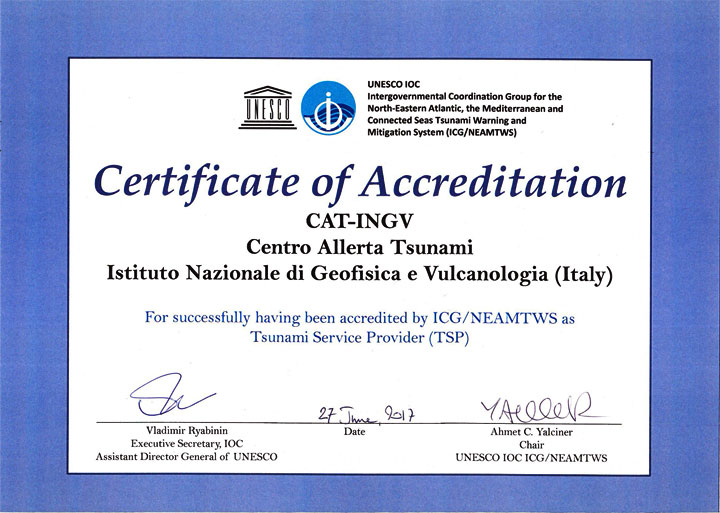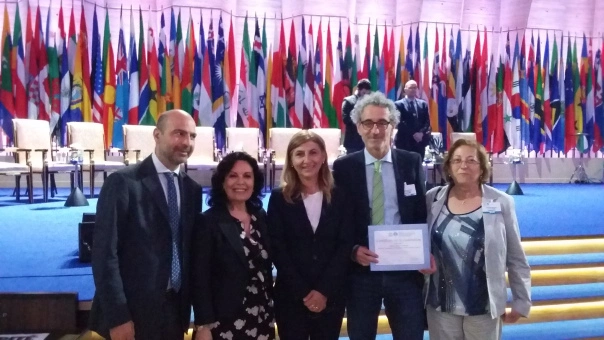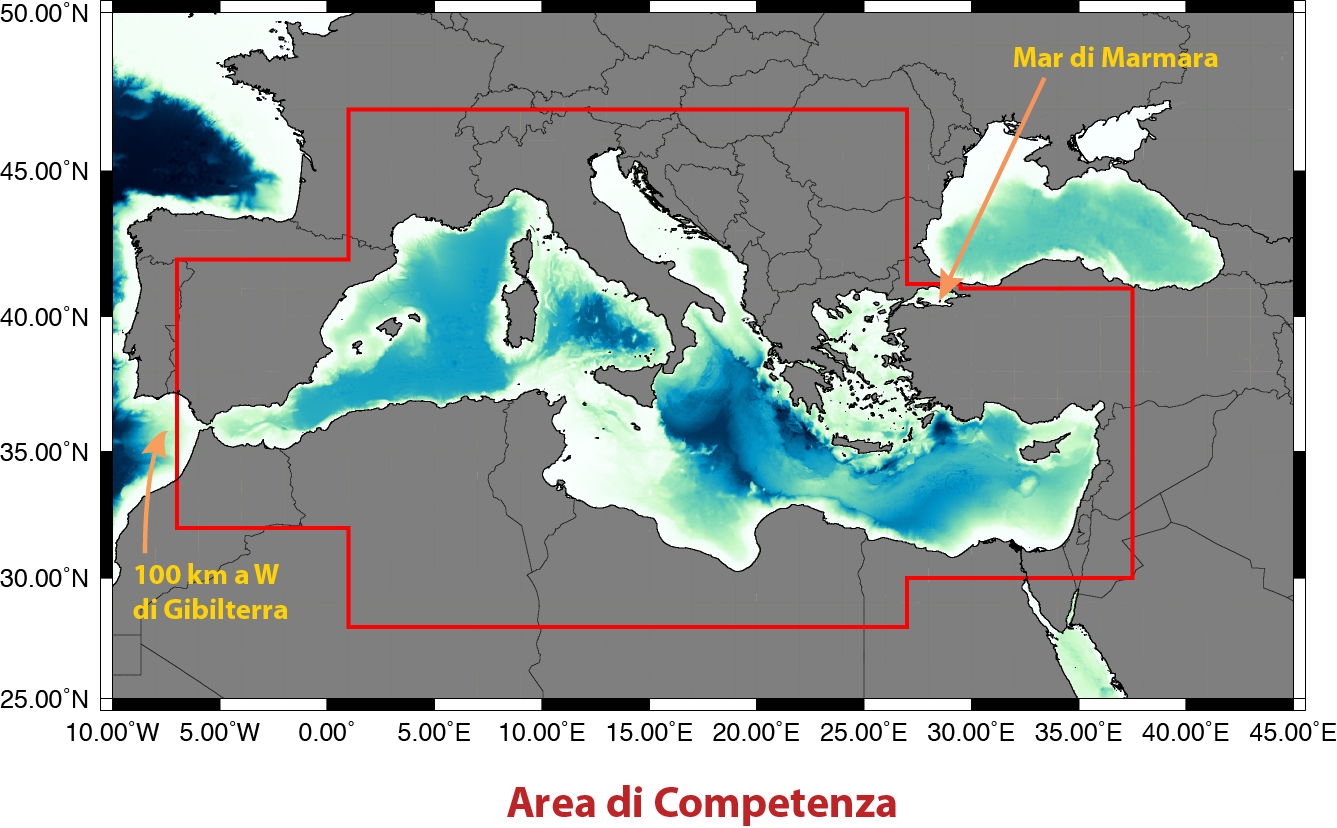 The CAT-INGV accreditation certificate
The CAT-INGV accreditation certificate
.Paris, 27 June 2017: The Tsunami Alert Centre (CAT) of the National Institute of Geophysics and Volcanology (INGV) receives the Tsunami Service Provider accreditation certificate. From left to right: Luigi D'Angelo (DPC); Vincenza Lomonaco (Italian Ambassador to UNESCO); Giusi Nicolini (former Mayor of Lampedusa); Alessandro Amato (CAT-INGV manager); Rosalia Santoleri (CNR, President of COI Italy).
The quality of services which a Tsunami Service Provider must be able to provide is defined by a set of very strict rules, standards and shared operating procedures, established by the ICG/NEAMTWS, which must be scrupulously observed to ensure the proper functioning of the system, the uniformity of the assessments and a rapid and reliable response should an event occur.
The accreditation procedure provides for a period during which the activities of the centre proposing itself as (Candidate) Tsunami Service Provider (c-TSP) are carried out in an experimental manner, and are subject to a series of checks by a special commission established by the ICG/NEAMTWS, which has the task of establishing that the necessary requirements to operate as a TSP are fulfilled.
The experimental activities of the CAT began in autumn 2014 at the Seismic Surveillance Room of the INGV in Rome. Since then, the CAT-INGV has been monitoring large earthquakes on a global scale, with particular attention to the Mediterranean Sea, as a C-TSP (Candidate Tsunami Service Provider). In summer 2016, the CAT applied to the ICG/NEAMTWS for accreditation as TSP (Tsunami Service Provider) for the Mediterranean basin. Following the positive outcome of the verifications carried out by a special commission established by the ICG/NEAMTWS, the CAT-INGV began carrying out the tsunami alert service for the entire Mediterranean basin in September 2016.
As a Tsunami Service Provider, the CAT-INGV works closely with other alert centres within the NEAMTWS system:
- Centre d'Alerte aux Tsunamis ( CENALT) for France,
- Hellenic National Tsunami Warning Centre - National Observatory of Athens , Institute of Geodynamics ( NOA/HL-NTWC) in Greece
- Boğaziçi University Kandilli Observatory and Earthquake Research Institute - Regional Earthquake-Tsunami Monitoring Center, ( KOERI-RETMC )Turkey.
- Instituto Português do Mar e da Atmosfera (IPMA) in Portugal.
To date, the warning messages are sent to several Mediterranean countries; in addition to the centres of the countries mentioned (France, Greece, Turkey), the CAT-INGV sends messages to: Cyprus, Egypt, Germany, Israel, Lebanon, Malta, Spain and Great Britain with the future goal of covering all countries in the area.
According to the indications of the NEAMTWS, the warning messages must be sent by the CAT at the latest 14 minutes after the occurrence of any potential tsunami-creating earthquake that occurs in the area of jurisdiction, which includes the entire Mediterranean

In the case of earthquakes which have hit the Mediterranean in recent years (Lesvos 2017; Bodrum - Kos 2017; Zakynthos 2018, Albania, 2019) the messages with the first alert were sent by the CAT-INGV between 7 and 10 minutes after the time of origin of the earthquakes. Consider that the (modest) tsunami that hit the island of Kos in July 2017 (with an observed maximum run-up wave of almost 2 metres) was viewed by the island’s port video cameras after 13 minutes (the first flood) and after 21 minutes (the second wave, the highest).



